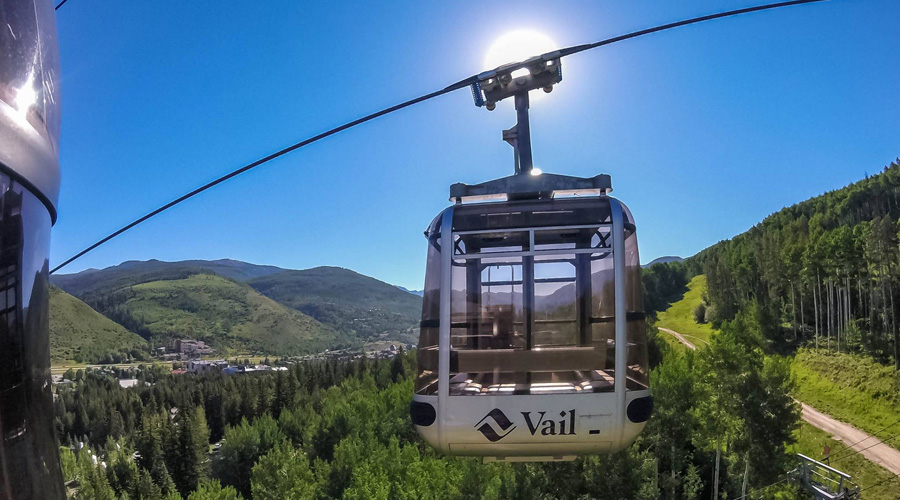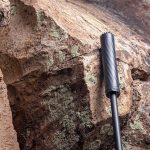Vail Resorts Inc. reported a 14.9 percent gain in earnings in its third quarter ended April 30, 2017, as well as the healthy early season pass sales for the 2017/2018 North American ski season.
Highlights
- Net income attributable to Vail Resorts, Inc. was $181.1 million for the third quarter of fiscal 2017, an increase of 14.9 percent compared to net income attributable to Vail Resorts, Inc. of $157.6 million for the third fiscal quarter of 2016. Included in net income for the third quarter of fiscal 2017, on a pre-tax basis, are charges for an increase in the Canyons contingent consideration of $14.5 million, foreign currency losses of $9.1 million on the intercompany loan to Whistler Blackcomb and a future contribution to Town of Vail parking of $4.3 million.
- Resort Reported EBITDA was $392.0 million for the third fiscal quarter of 2017, which includes the operations of Whistler Blackcomb Holdings Inc. (“Whistler Blackcomb”) and $2.3 million of transaction, transition and integration costs associated with the Whistler Blackcomb and Stowe Mountain Resort (“Stowe”) acquisitions. Excluding transaction, transition and integration costs and Whistler Blackcomb operations in the third quarter of fiscal 2017 and $3.5 million of
- Lodging Reported EBITDA associated with the termination of the company’s management agreement with respect to the Half Moon Resort in Jamaica in the third quarter of fiscal 2016, Resort Reported EBITDA in the third fiscal quarter increased 7.0 percent compared to the same period in the prior year.
- On June 7, 2017, the company announced the closing of the acquisition of Stowe. The final purchase price, after adjustments, was approximately $41 million. Stowe will be included on the Epic Pass and other season pass products for the 2017/2018 ski season.
- Resort Reported EBITDA is expected to be between $591 million and $600 million for fiscal 2017, which includes approximately $10.0 million of Whistler Blackcomb transaction and integration expenses, approximately $2.2 million of Stowe transaction and integration expenses, and $3.5 million of expected Stowe operating losses related to the period between closing and the end of the fiscal year. Excluding the expected Stowe operating losses and Stowe transaction and integration expenses, we expect our Resort Reported EBITDA to be between $597 million and $606 million for fiscal 2017.
Season pass sales for the 2017/2018 North American ski season increased approximately 10 percent in units and approximately 16 percent in sales dollars through May 30, 2017 compared with the prior year period ended May 31, 2016, including Whistler Blackcomb pass sales at comparable exchange rates in both periods.
Commenting on the company’s fiscal 2017 third quarter results, Rob Katz, chief executive officer said, “We are pleased with our performance in the quarter and for the entirety of the 2016/2017 North American ski season. Including results from Whistler Blackcomb, total lift revenue increased 25.3 percent, driven by a 26.0 percent growth in visitation partially offset by a 0.5 percent decrease in effective ticket price (ETP) compared to the same period in the prior year. The ETP decline was driven by the inclusion of Whistler Blackcomb’s ETP in results in fiscal 2017 which are lower on a U.S. dollar basis than the company average. Excluding Whistler Blackcomb, ETP increased 7.5 percent in the third fiscal quarter compared to the prior year. Guest spending continues to be strong which, with the addition of Whistler Blackcomb, drove a 23.5 percent increase in ski school revenue, a 28.7 percent increase in food and beverage revenue and a 28.6 percent increase in retail and rental revenue, compared to the same period in the prior year.”
“Results from Whistler Blackcomb in the third quarter of fiscal 2017 continued to be exceptionally strong with the resort completing the season with significant growth above its record prior year. The resort benefited from excellent conditions throughout the season, a low Canadian dollar versus U.S. dollar exchange rate driving significant destination growth from U.S. and other international guests and the outstanding experience the resort provides. Excluding Whistler Blackcomb operations, total lift revenue increased 5.6 percent. Park City continued to deliver the strongest growth among our U.S. resorts driven by growing destination visitation and yield improvements in our second season following the transformational investments to combine Park City and Canyons. The Tahoe resorts benefited from excellent conditions following the storms in January and achieved record revenue levels in all key business lines. In Colorado, strong guest spending drove results that were in-line with last year’s record performance despite weaker snowfall later in the season. Third quarter U.S. destination visitation to our U.S. resorts remained robust, despite significant growth in the number of U.S. destination visitors going to Whistler Blackcomb. The strength in U.S. destination visitation to our U.S. resorts was partially offset by a decline in international visitation to our U.S. resorts from both Mexico and Canada, a trend that significantly benefited Whistler Blackcomb.”
Katz continued, “Our year-to-date results highlight the continued success of our season pass and guest-focused marketing efforts, the importance of geographic and currency diversification in our resort network and the outstanding experience we provide at our resorts. Our growth in season pass sales continues to be driven by sales to both local and destination guests who increasingly appreciate our network of resorts and the compelling value proposition our season pass products offer for their ski vacations. We also continue to benefit from our improved ability to segment and personalize our marketing messages to guests resulting from the significant investments we have made in data capture and analytics over the past several years.”
Regarding Lodging, Katz said, “Our Lodging results for the third fiscal quarter were impacted by the variable late season conditions in Colorado (which comprise a disproportionate amount of our Lodging portfolio versus our properties in Utah, California and Whistler) and the sale of the Inn at Keystone in November 2016. Revenue (excluding payroll cost reimbursements) decreased 6.3 percent and revenue per available room (“RevPAR”) increased 0.3 percent compared to the same period in the prior year, which included the receipt of a one-time $3.5 million termination fee for Half Moon Resort in Jamaica.”
Katz continued, “Resort Reported EBITDA was $392.0 million for the fiscal quarter, an increase of 27.9 percent over the same period in the prior year, primarily as a result of the acquisition of Whistler Blackcomb. Resort EBITDA Margin for the quarter was 49.6 percent, an increase of 210 basis points.”
Regarding Real Estate, Katz said, “During the fiscal quarter, we closed on two condominium units at Ritz-Carlton Residences, Vail. Net Real Estate Cash Flow for the third quarter of fiscal 2017 was $2.8 million. Since April 30, 2017, we have closed on the last remaining condominium unit at Ritz-Carlton Residences, Vail. We are now sold-out of our One Ski Hill Place and Ritz-Carlton Residences, Vail residential condominium projects. Real Estate EBITDA for the third quarter of fiscal 2017 includes a $4.3 million one-time charge related to our expected contribution to a new, to be constructed, Town of Vail owned 160 space public parking structure, in a project that was recently identified by the Town. The creation of this new public parking and our related contribution has been under consideration for over a decade and will be a great enhancement to the guest experience as Vail continues to grow.”
Katz continued, “Our balance sheet remains strong and the business continues to generate robust cash flow. We ended the quarter with $195.8 million of cash on hand and our Net Debt, including the capitalized Canyons obligation, was 1.7 times trailing twelve months Total Reported EBITDA, which includes our outstanding debt of $1.2 billion as of April 30, 2017. I am also very pleased to announce that our Board of Directors has declared a quarterly cash dividend on Vail Resorts’ common stock. The quarterly dividend will be $1.053 per share of common stock and will be payable on July 13, 2017 to shareholders of record on June 28, 2017.”
Operating Results
Mountain Segment
Total lift revenue increased $84.9 million, or 25.3 percent, compared to the same period in the prior year, to $419.6 million, primarily due to incremental revenue from Whistler Blackcomb. Excluding Whistler Blackcomb, total lift revenue increased 5.6 percent compared to the same period in the prior year.
Ski school revenue increased $17.4 million, or 23.5 percent, compared to the same period in the prior year, primarily as a result of incremental Whistler Blackcomb revenue. Excluding Whistler Blackcomb, ski school revenue increased 2.9 percent compared to the same period in the prior year.
Dining revenue increased $14.6 million, or 28.7 percent, compared to the same period in the prior year, primarily due to incremental revenue from Whistler Blackcomb. Excluding Whistler Blackcomb, dining revenue increased 0.6 percent.
Retail/rental revenue increased $22.7 million, or 28.6 percent, compared to the same period in the prior year, primarily due to incremental retail sales and rental revenue from Whistler Blackcomb. Excluding Whistler Blackcomb, retail/rental revenue increased 3.4 percent.
Operating expense increased $58.4 million, or 20.7 percent, compared to the same period in the prior year, primarily due to the inclusion of operating expenses from Whistler Blackcomb and $2.3 million of transaction, transition and integration expenses associated with the Whistler Blackcomb and Stowe acquisitions.
Mountain Reported EBITDA increased $90.2 million, or 31.0 percent, compared to the same period in the prior year. Excluding transaction, transition and integration expenses related to the Whistler Blackcomb and Stowe acquisitions of $2.3 million and Whistler Blackcomb operations, Mountain Reported EBITDA increased 7.9 percent.
Mountain Reported EBITDA includes $3.6 million of stock-based compensation expense for the three months ended April 30, 2017 compared to $3.3 million in the same period in the prior year.
Lodging Segment
Lodging segment net revenue (excluding payroll cost reimbursements) decreased $4.4 million, or 6.3 percent, as compared to the same period in the prior year, primarily due to the $3.5 million Half Moon termination fee received in the prior year, variable late season conditions in Colorado during the current fiscal quarter and the sale of the Inn at Keystone in November 2016.
Occupancy decreased 3.9 percentage points and Average Daily Rate (“ADR”) increased 8.5 percent at the company’s owned hotels and managed condominiums compared to the same period in the prior year.
Lodging Reported EBITDA decreased $4.8 million, or 31.0 percent, compared to the same period in the prior year, primarily due to the $3.5 million Half Moon termination fee received in the prior year, variable late season conditions in Colorado during the current fiscal quarter and the sale of the Inn at Keystone in November 2016.
Lodging Reported EBITDA includes $0.8 million of stock-based compensation expense for both the three months ended April 30, 2017 and 2016.
Resort – Combination of Mountain and Lodging Segments
Resort net revenue increased $144.0 million, or 22.3 percent, to $789.8 million compared to the same period in the prior year, primarily attributable to revenue from Whistler Blackcomb.
Resort Reported EBITDA was $392.0 million, an increase of $85.4 million, or 27.9 percent, compared to the same period in the prior year. Excluding transaction, transition and integration costs and Whistler Blackcomb operations in the third quarter of fiscal 2017 and $3.5 million of Lodging Reported EBITDA associated with the termination of the company’s management agreement with respect to the Half Moon Resort in Jamaica in the third quarter of fiscal 2016, Resort Reported EBITDA in the third fiscal quarter increased 7.0 percent compared to the same period in the prior year.
Real Estate Segment
Real Estate segment net revenue increased $3.1 million as compared to the same period in the prior year.
Net Real Estate Cash Flow was $2.8 million, an increase of $2.2 million from the same period in the prior year.
Real Estate Reported EBITDA decreased by $3.6 million, to a loss of $4.9 million, compared to the same period in the prior year, including the $4.3 million one-time charge related to the resolution of our financial contribution to the new Town of Vail public parking structure.
Total Performance
Total net revenue increased $147.2 million, or 22.7 percent, to $794.6 million as compared to the same period in the prior year.
Net income attributable to Vail Resorts, Inc. was $181.1 million, or $4.40 per diluted share compared to net income attributable to Vail Resorts, Inc. of $157.6 million, or $4.23 per diluted share, in the same period of the prior year. Included in net income for the third quarter of fiscal 2017, on a pre-tax basis, are charges for an increase in the Canyons contingent consideration of $14.5 million, foreign currency losses of $9.1 million on the intercompany loan to Whistler Blackcomb and a future contribution to Town of Vail parking of $4.3 million.
Return of Capital
The company declared a quarterly cash dividend of $1.053 per share of Vail Resorts common stock that will be payable on July 13, 2017 to shareholders of record on June 28, 2017. Additionally, a Canadian dollar equivalent dividend on the exchangeable shares of Whistler Blackcomb will be payable on July 13, 2017 to exchangeable shareholders of record on June 28, 2017. The exchangeable shares were issued to certain Canadian persons in connection with our acquisition of Whistler Blackcomb.
Stowe Mountain Resort
On June 7, 2017, the company announced the closing of the Stowe acquisition. The final purchase price, after adjustments, including a reduction in the price by the amount that the resort’s EBITDA exceeded capital expenditures for the period from November 1, 2016 through closing, was approximately $41 million. Stowe is now included on the Epic Pass and other season pass products for the 2017/2018 ski season, though full integration will not occur until after the 2017/2018 ski season.
Season Pass Sales
Commenting on the company’s season pass sales for the upcoming 2017/2018 North American ski season, Katz said, “We are very pleased with the results for our season pass sales to date. Pass sales through May 30, 2017 for the upcoming 2017/2018 North American ski season increased approximately 10 percent in units and approximately 16 percent in sales dollars, as compared to the prior year period through May 31, 2016. This represents continued significant growth over our record unit performance last spring (up 29 percent over spring 2015) and in the spring of 2015 (up 12 percent over spring 2014). Our spring pass sales included strong growth from our destination guests and particular strength in our Northern California and Pacific Northwest local markets following great conditions in the 2016/2017 ski season and the full inclusion of Whistler Blackcomb on the Epic Pass for next season. Whistler Blackcomb pass products are included in both current and prior year periods at comparable exchange rates with the exception of one and three day EDGE cards, the vast majority of which were sold after the beginning of the ski season and will not be offered for the 2017/2018 ski season. While in the past two years we have seen a material deceleration of our pass sales growth rate from spring results to fall results, we expect the growth rate this year to be more stable between the two time periods.”
Katz continued, “We look forward to being able to fully include Stowe in our season pass marketing efforts this fall and incorporating the guest information they have into our data-based, CRM efforts. Further, we look forward to beginning our more comprehensive guest information collection effort at Whistler Blackcomb for the upcoming season. Historically, Whistler Blackcomb has had information on only approximately 20 percent of their non-season pass guests, dramatically lower than our U.S. resorts’ data capture of approximately 96 percent. We have found that this information and the ability to better segment and personalize our communications to our guests has been one of the largest drivers of our season pass growth in past years, setting us up very well for continued pass sales growth for fiscal 2019 and beyond.”
Regarding Epic Australia Pass sales, Katz commented, “Perisher’s 2017 ski season kicked off one week earlier than scheduled on June 3, and we are very pleased with sales of the Epic Australia Pass, which end on June 12, 2017 and are up 21 percent in units through June 4, 2017, as compared to the prior year period through June 5, 2016, benefiting from the addition of Whistler Blackcomb to the resort network, which is one of the top North American ski destinations of choice for Australians.”
Epic Discovery Update
Commenting on the launch of Epic Discovery at Breckenridge this summer, Katz said, “We are very excited to welcome visitors to the first year of Epic Discovery at Breckenridge, which will officially open this weekend along with our second full years at Vail and Heavenly. Our summer guests will have the opportunity to enjoy a great lineup of activities for the whole family, including ropes courses, zip lines, summer tubing and alpine coasters, along with incredible opportunities for experiential learning in a high alpine environment.”
Outlook
Fiscal 2017 Resort Reported EBITDA is expected to be between $591 million and $600 million, which includes approximately $10.0 million of Whistler Blackcomb transaction and integration expenses, approximately $2.2 million of Stowe transaction and integration expenses, and $3.5 million of expected Stowe operating losses related to the period between closing and the end of the fiscal year. Excluding the expected Stowe operating losses and Stowe transaction and integration expenses, we expect our Resort Reported EBITDA to be between $597 million and $606 million for fiscal 2017. Resort EBITDA Margin (defined as Resort Reported EBITDA divided by Resort net revenue) is expected to be approximately 31.4 percent in fiscal 2017, at the midpoint of our guidance range.
Fiscal 2017 Real Estate Reported EBITDA is now expected to be between negative $2 million and $0 million, including the $4.3 million contribution to the Town of Vail parking garage.
Net income attributable to Vail Resorts, Inc. is expected to be between $183 million and $201 million in fiscal 2017.
Image courtesy Vail Resorts















